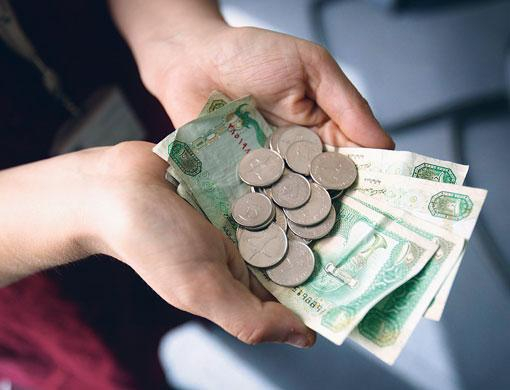
The prospect of retiring and earning enough to quit the rat race while you're still young is a dream for many expats in the UAE.
With all the financial literacy articles and videos saturating the internet, retiring at 40 is now an achievable goal. Saving a large pot of money and living beneath your means is the key to make this work.
Ideally, at 40 you should have triple the amount of your annual income in your savings account. Basically, by the time you are 30, if you earn Dh85,000 per year then you should at least have around Dh85,000 in your saving account.
So ideally, by the age of 40, if you make Dh90,000 a year, your savings should be Dh270,000.
If you want to retire at 65 years old, the key is to save 15 per cent to 25 per cent every pay day.
But if you plan on retiring at 40, you'll need to save about 50 per cent per paycheck (slightly unrealistic, but maybe possible).
Here are some tips to get you started:
Assess your net worth
The starting point for any financial planning is knowing what you are worth now. Make a list of what you own and, roughly, what you think it is all worth. The start by developing a plan on how to save and where everything needs to go.
Find out how to budget your monthly income here.
Aggressive saving
This may not be a favourite on your to-do list, but it’s important. Budgeting can reveal where your money goes, whether you earn more than you spend and how much more you could be saving. Look at about three months of your spending. That way, it’s easier to get a clearer picture of what you’re spending your money on. You might be surprised just how much you are wasting on things you simply don’t need. Include savings as part of the budget and treat it like any other monthly outgoing expense such as a phone bill.
Click here to find out 8 things you should stop spending your money on.
Tackle debt
Once you’ve set aside cash for day-to-day costs, you can then meet bill and loan repayment demands in order of priority. Pay off the highest interest debt first. If you have multiple high-interest loans and/or cards, choose to pay off the one with lowest outstanding first.
Pay yourself 40 per cent of your salary
Most people save what’s left over at the end of every month. Flip that strategy. Set a goal for your savings. Divide that amount by 12, and then save that money every month, before spending on anything else. If you really want to save, it's gotta be at least 40 per cent of the amount you earn every month.
Tip: Have money transferred regularly from your current account into whatever savings or investment vehicle you decide, or even an account within your account (e-savings). The key is to automate the behaviour so it quietly works in the background, leaving you to focus on the things that really matter.
Stop upgrading your gadgets
If there’s anything you really need (such as a new mobile phone), wait for a few months for the prices to drop. You can also trade in or sell your old phone to slash the retail price. Also, shop around for family plans.
Give up on unnecessary expenses.
Are you really going to use that gym membership? You can run at the park or work out in your building if there's a gym. Do you have to buy a snack or two each time you pass by the grocery shop? Do it on weekends instead. Are you a picky clothes shopper? Find the items you really need and keep an eye on them until chain stores mark the prices down.
Try to 5:2 your budget
Spend only during weekends and as little as possible during the week.
Stop online shopping
Unsubscribe from emails enticing you to shop. Delete shopping apps from your mobile.
Cut down on habits
Stop buying energy drinks or cigarettes. It's easy to live and eat healthy on a budget.
Check out these healthy meals you can eat on a low budget.
Coupons
Take advantage of qualifying discounts. Weekend or pay day discounts abound, and they may just be unannounced. Ask the staff, or, visit the establishment’s website prior to shopping. There are member discounts or credit cashbacks and promotions.
Long-term investments that will help you retire early:
1. Develop multiple streams of income
At some point in your life, one salary will not be enough. If you want to retire early, you will need a pretty high income. It's ideal to have something that won't stop flowing in, even after you are done working. So invest your money in real estate for example.
2. Live beneath your means
People who spend less can be very happy. Ask yourself if the things you buy bring you joy in the longterm, rather than seeing how expensive they are. The best way to save is to enjoy, the wealth of cheap and free activities out there. Examples include cooking, hiking, reading, and taking advantage of the free activities offered by your city or town.
Find out how to get richer with these 6 money resolutions.
Taking on such an aggressive goal means making big adjustment decisions to incorporate more practical means into your day-to-day life.
Source: Kimmie Greene, money expert at Intuit and spokeswoman for Mint.com











